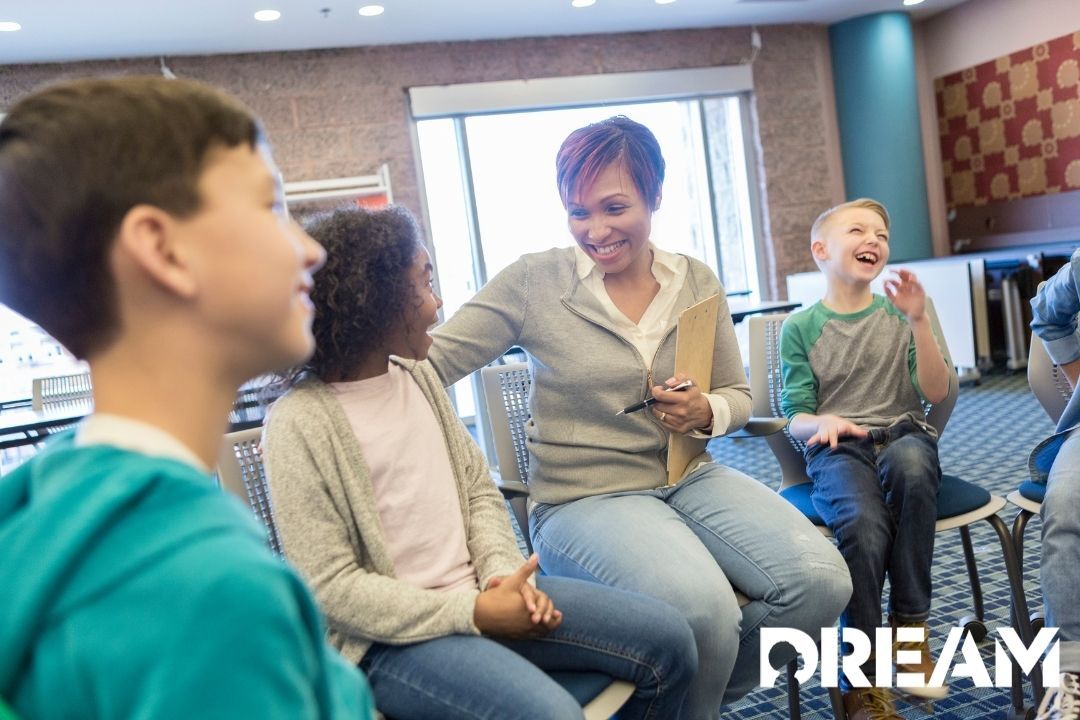
Creating safe spaces and mentoring at-risk youth plays a crucial role in giving them the support and guidance they need to overcome adversity. These spaces help foster an environment in which at-risk youth can thrive, and it gives them a mentor who can help them overcome obstacles and challenges. DREAM works to give the youth in our community opportunities to express themselves freely, without fear of judgment.
At-risk youth meaning and reaching them where they’re at
Before we get into the benefits of safe spaces, we’ve got to understand the at-risk youth meaning. Young people who face various socio-economic, familial or environmental circumstances are considered at-risk. They often are more vulnerable to poverty, violence and substance abuse, and they may have a hard time doing well in school. This can negatively impact their self-esteem and outlook on life. This is why organizations like DREAM exist; we want a place where they can build connections and develop resistance.
Benefits of safe spaces and mentoring at-risk youth
Safety
Safe spaces allow at-risk youth to share their experiences, thoughts and emotions. Emotional safety promotes self-awareness, self-expression and the development of healthy coping mechanisms.
Growth
By offering a supportive atmosphere, safe spaces empower at-risk youth to explore their talents, interests and passions. They can engage in activities that promote personal growth, resilience and positive self-identity with their peers.
Trust
Safe spaces facilitate the formation of meaningful connections with peers and mentors. These relationships help combat feelings of isolation and loneliness that at-risk youth may experience, fostering a sense of belonging and finding their place in the community.
Support
Team mentoring provides at-risk youth with someone who cares about them and their future, encourages them to stay in school and gives them the resources they need to grow. Mentors help at-risk youth navigate difficult situations and make informed decisions.
Skills
Mentorship programs provide at-risk youth with opportunities to learn critical life skills, such as goal setting, problem-solving, communication and conflict resolution. These skills empower them to overcome obstacles and make positive choices.
Resilience
Mentors serve as positive role models, demonstrating resilience and perseverance in the face of adversity. By sharing their own experiences and offering encouragement, mentors instill resilience and inspire at-risk youth to overcome challenges.
Join DREAM
If you’re interested in mentoring at-risk youth, consider volunteering with DREAM! We’re always looking for people of any background to join our team. We’ve seen the difference our programs have made thus far, and cannot continue doing the good in our community without our team. Safe spaces and mentorship programs are vital in supporting at-risk youth on their journey toward a brighter future. Contact us today to see how you can get involved!


